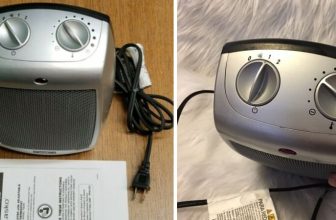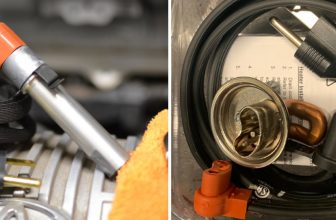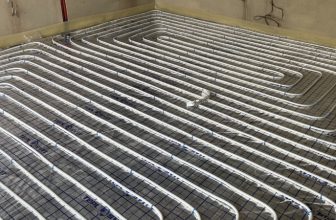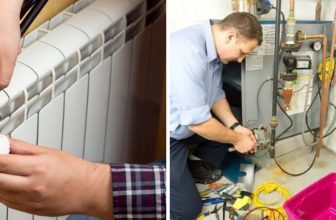How to Dispose of Old Water Heater
Do you have an old water heater taking up space in your basement or garage? Even though it’s no longer functioning, getting rid of it can be a confusing and difficult process. With the help of our guide, however, disposing of an old water heater doesn’t have to be hard! Not only do we provide helpful tips for responsible disposal, but you might even find ways to repurpose your broken appliance into something new and beautiful.
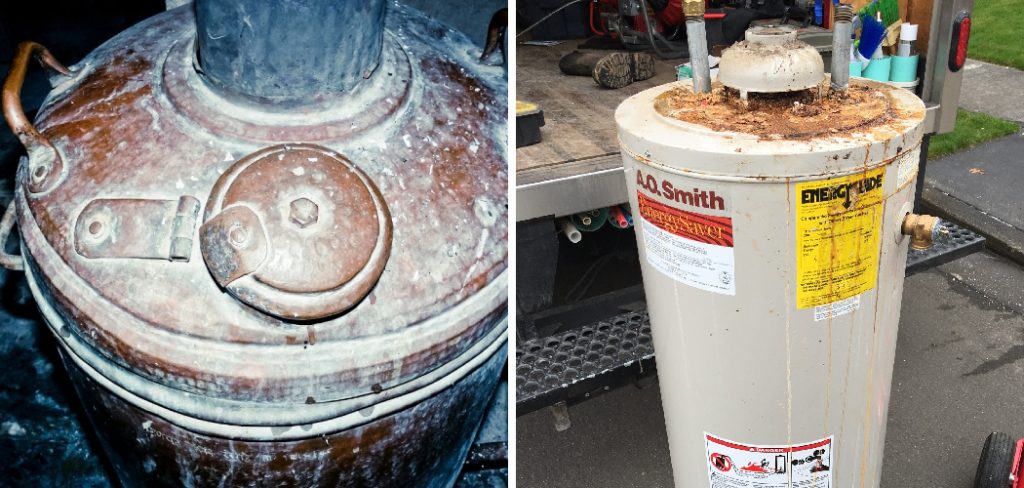
Before tossing it away and wasting valuable resources, consider repurposing your water heater creatively – from revamping its aesthetic value as a garden decor piece to finding unique uses for the tank itself.
This blog post covers all how you can upcycle your old water heater and transform it into something beautiful! Read on to learn more about how to dispose of old water heater.
What Can Make Disposal Difficult?
Getting rid of an old water heater can be difficult for many reasons. First, water heaters are big and bulky, making it hard to transport them. Second, depending on how old your water heater is, it may contain hazardous materials such as asbestos and lead, so it’s important to take the right precautions when disposing of an appliance like this.
Finally, there are often restrictions on how and where you can legally dispose of a water heater. Depending on where you live in, different states have their own rules for how to get rid of old appliances – so make sure to check with your local regulations before trying to dispose of yours! Here’s how you can do that. Keep reading to learn more!
What Will You Need?
When it comes to disposing of old water heaters, you’ll need a few things.
- A plan for how you’ll get rid of your old water heater
- Appropriate personal protective equipment such as gloves, goggles, and a mask to prevent inhalation of hazardous particles
- Appropriate transportation vehicle to move the water heater
- Assistance from other people who can help lift and move the heavy appliance
- If applicable, an off-site hazardous waste disposal facility
Once these items are prepared, you’re ready to begin the disposal process!
10 Easy Steps on How to Dispose of Old Water Heater
Step 1. Find the Way
Research how to dispose of old water heaters based on your area’s regulations. It is important to follow the necessary guidelines to avoid any legal trouble. Otherwise, you should contact your local waste disposal services.
Step 2. Be Prepared
Before beginning the process, make sure to have all necessary safety equipment, such as gloves and goggles. You should also be sure to have a container or bag ready to dispose of any hazardous materials that may come from your water heater. Be careful not to inhale the dust or particles that may be released.
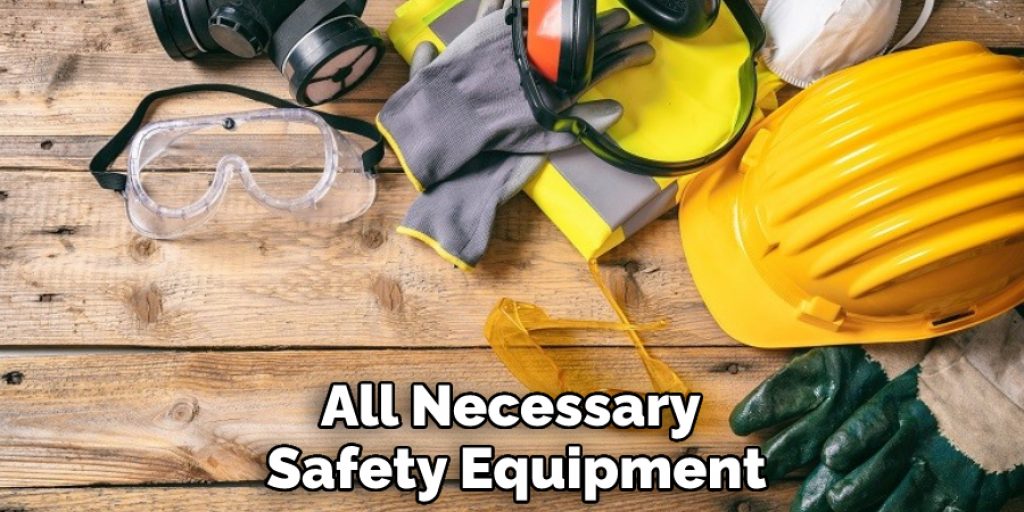
Step 3. Drain the Tank
Turn off the gas supply before draining the tank completely. Make sure you follow all relevant safety instructions when doing so. After draining the tank, remove all parts like pipes, fittings, and valves that can be reused or recycled
Step 4. Disconnect & Remove
Disconnect the water heater from its power source and carefully lift it up to avoid damaging any surrounding surfaces (such as walls). If you need assistance, contact an appliance removal service to help with this step – they will know how to do it safely!
Step 5. Clean & Dispose of
Clean any dust and debris from the water heater before disposing of it. If there are any hazardous materials, such as asbestos or lead, you should take special precautions when handling them and contact your local waste disposal service for help in properly disposing of them. It is important to note that these materials should not be placed in your regular trash pickup.
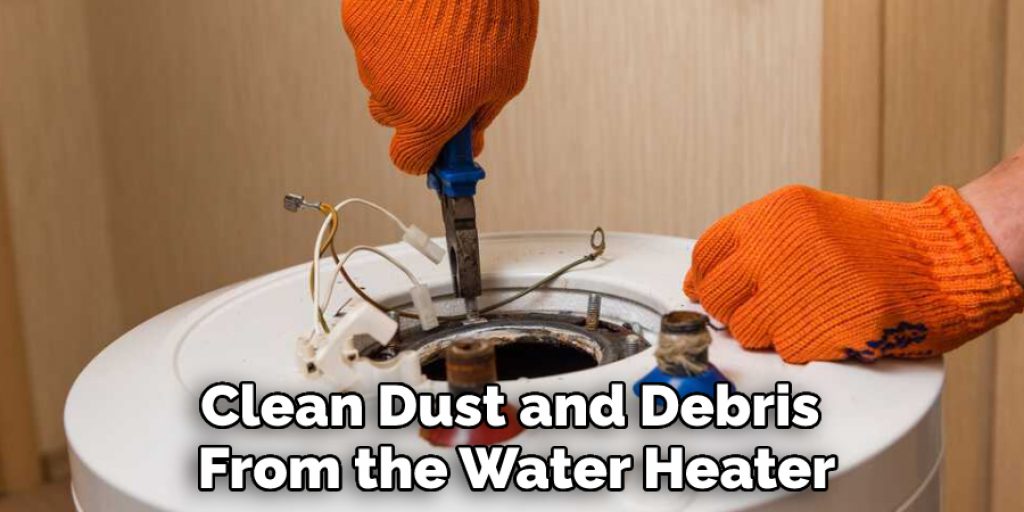
Step 6. Recycle Parts
Any parts that can be recycled should be done so responsibly – either by donating them to a recycling center or taking them to a scrap metal yard for money. This is a great way to extend the life of these materials and reduce landfill waste. You can also contact your local appliance repair store to see if they can reuse any of the parts.
Step 7. Donate
See if any nearby charities will accept donations of water heaters, as some may be able to use them. This is a great way to give back and prevent waste simultaneously! Moreover, many cities and states have appliance donation centers or even appliance recycling centers that will accept used water heaters.
Step 8. Dispose of Remaining Parts
Any remaining parts that cannot be reused or recycled should be taken to your local hazardous waste disposal facility. Make sure you follow all necessary safety guidelines when disposing of these items. Ensure that the facility knows how to handle any hazardous materials safely.
Step 9. Contact Professionals
If you are still unsure of disposing of an old water heater safely, contact professionals who specialize in appliance removal and hazardous materials disposal. These professionals will have the tools and expertise to safely and quickly remove your water heater. Additionally, they will be able to advise you on how to dispose of any hazardous materials from the water heater safely.
Step 10. Document
Lastly, be sure to keep all documentation on how you disposed of your water heater. This will ensure that you have proof if any issues arise. It is also important to keep these documents for any potential insurance claims.
Following these steps can help you dispose of old water heaters in a safe and responsible way. It is important to always adhere to all safety regulations when disposing of heavy appliances like water heaters and contact professionals if needed. Moreover, recycling or donating parts whenever possible helps reduce waste while still ensuring that your old water heater is disposed of properly.
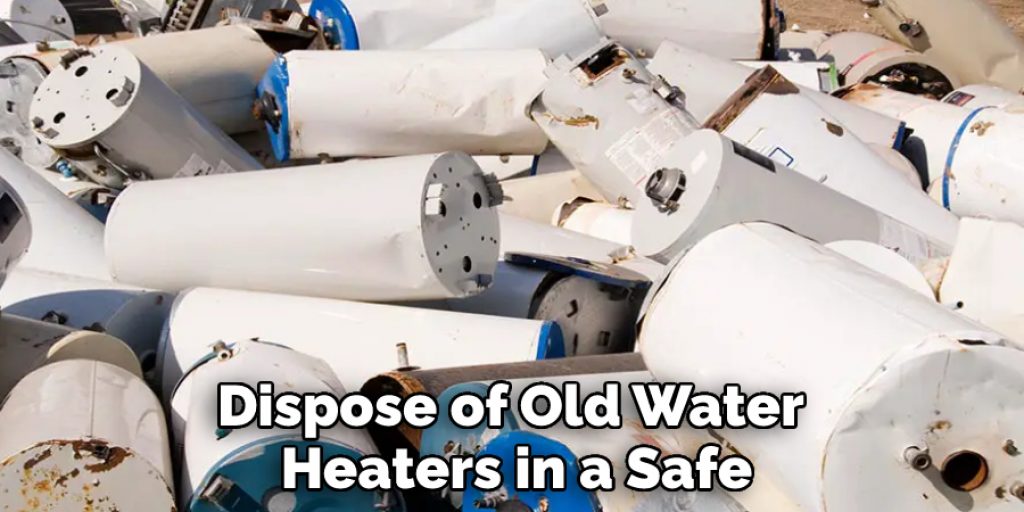
5 Additional Tips and Tricks
- Contact your local waste management company to inquire about how and where to dispose of the old water heater. Many municipalities have regulations in place for how items such as this should be disposed of, so it is important to check with local authorities first.
- Remove any markings or identifying information from the old water heater before disposal, such as labels and serial numbers. This can help reduce the risk of identity theft or other fraudulent activity.
- Prior to disposal, make sure you disconnect all plumbing from the water heater and drain off any remaining water in the tank. Be sure also to remove any insulation materials used to insulate it.
- Before disposing of your old water heater, take some time to inspect it for signs of corrosion or damage that might need repair or replacement prior to getting rid of it permanently. If any repairs are needed, make them before getting rid of the old water heater.
- If possible, consider donating or even selling your old water heater instead of disposing of it. This may require researching how and where you can do this, but it can be a great way to help save the environment by reusing items and reducing overall waste in landfills.
Be sure to take proper precautions when handling an older water heater and follow all instructions provided for proper disposal. Doing so will ensure that you protect yourself and your property and help keep the environment safe. With these tips in hand, you can easily dispose of your old water heater without any issues.
5 Things You Should Avoid
1. Don’t Try to Move the Water Heater on Your Own: Water heaters are bulky, heavy, and awkward to move. Trying to move it on your own could cause serious injury.
2. Don’t Leave the Water Heater Outside: Old water heaters can contain hazardous waste that must be disposed of correctly and not contaminate the environment. Placing old water heaters outside may also lead to further damage, such as rust or weathering.
3. Don’t Throw Away the Water Heater: Water heaters have parts that must be recycled and are illegal to discard into a landfill or public dumping area simply. If you do, you may face fines from local authorities or the Environmental Protection Agency (EPA).
4. Don’t Attempt to Disassemble the Water Heater: Water heaters are complex machines and require proper training and expertise to be disassembled safely. Doing so without the right expertise can be dangerous and may even result in an explosion.
5. Don’t Neglect Your Safety When Disposing of a Water Heater: There are many safety protocols that must be followed while disposing of a water heater, such as wearing protective clothing, ensuring ventilation, and properly disconnecting electrical wires. Neglecting any of these protocols can lead to serious injury or even death.
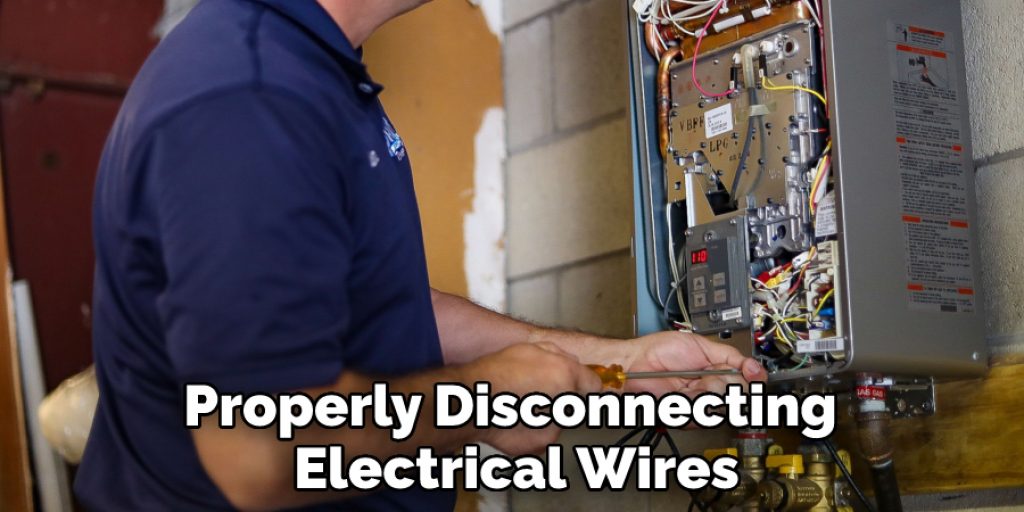
It is important to remember that proper disposal of a water heater is good for the environment and your safety. Be sure to contact your local waste management agency or licensed recycling facility to find out what the proper procedures are for disposing of your old water heater. You can safely and efficiently handle this task with the right information!
Conclusion
Overall, both disposing of old water heaters at a hazardous waste disposal site or recycling them are helpful and effective options. Disposal may be more expensive, but it provides peace of mind that the equipment is not left outdoors, where it could cause environmental damage or become hazardous to surrounding wildlife.
Recycling also allows for precious materials to be taken out of landfills and reused, which benefits the environment and energy savings. Whichever disposal method is chosen, ensure all safety requirements are met, and all protective measures are taken when handling this equipment.
Hopefully, the article on how to dispose of old water heater has helped you understand what options are available and the safety protocols that must be followed. With proper preparation and usage of these methods, water heaters can be disposed of safely without putting unwarranted strain on our environment.

